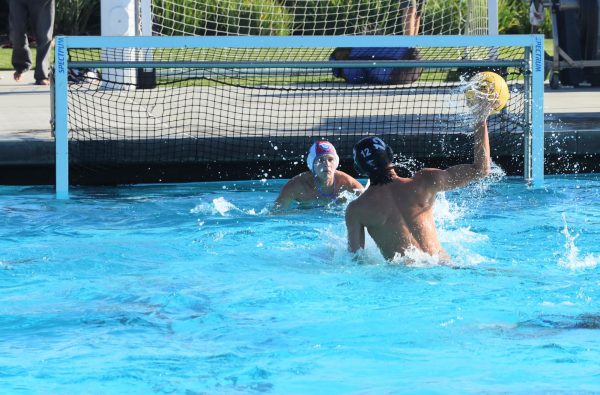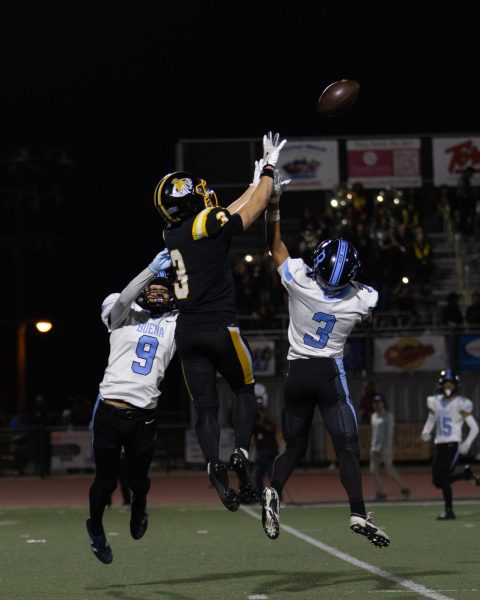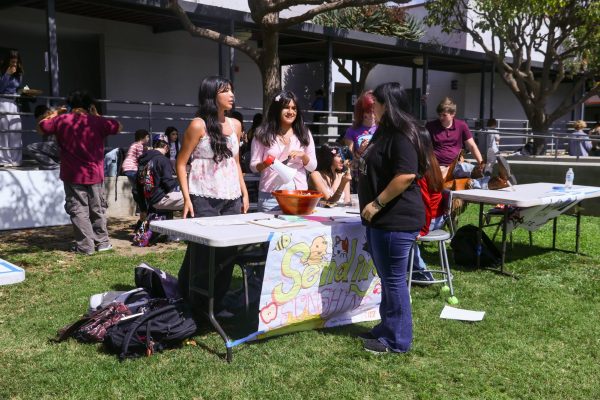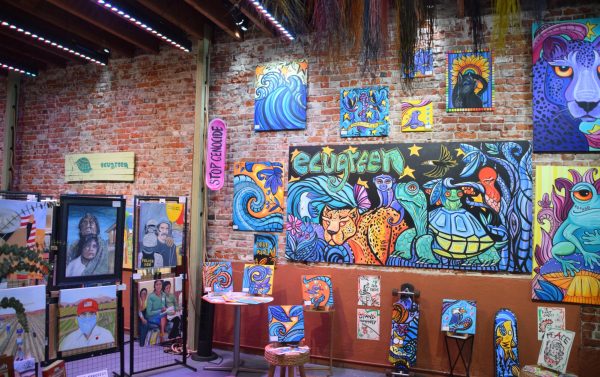Foothill students and their worlds at home
June 13, 2017
Foothill is known for its collection of quirky students who all have different characters that add to the campus atmosphere. From musicians to scientists to pun loving teens, Foothill has a little bit of everything. Although, something you may not know about the girl you sit next to in math class or the boy who plays soccer with you is their global background.
Many students at Foothill have families who have immigrated to the United States, or speak a different language at home and some who lived in another country for part of their life. Delving into this exceptional aspect of the Foothill campus sparks a large discussion about cultural differences and the importance of international diversity in creating open-mindedness.
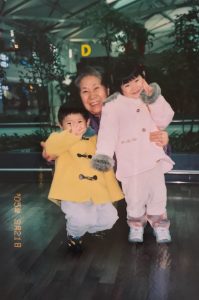
“I think Foothill is a really accepting school and it’s a really welcoming environment for kids of different cultures. Compared to the other high schools, I think Foothill is really open-minded and all those different diverse backgrounds,” Sowon Lee ‘19 said.
Lee immigrated to the United States from South Korea when she was five years old. At home, she speaks Korean with her parents. Lee expressed that it was difficult to learn English while trying to attend school.
“It was really hard, not being able to communicate with my friends at school and talking to them in English because I [spoke] Korean,” she said. Lee shared that her sister would help her learn English by reading Dr. Seuss books together.
Jaqueline Fregoso ‘18 also explained that learning English was the hardest part of her transition from a Latin American home life to school.
“It was a struggle to learn English since I learned Spanish first at home,” Fregoso said. “I started learning when I got to preschool and I was slowly but surely gaining more English, and then I got officially certified as a fluent speaker in third grade.”
For some students, their families’ culture is upheld in food and traditions. Anson Tan ‘18 lives an equal life of Chinese and American culture. In his home, his parents uphold Chinese culture: cooking Chinese dishes for every meal, keeping the house clean and taking shoes off before entering, a regular Chinese tradition in the upkeep of a home.
Tan considers American culture as “more loose” and with less traditions. Where here greeting others is a casual affair in many settings, in China, one is expected to greet others with respect, especially if they are your elders, calling them by their title or last name.
“I think you get to learn and appreciate different cultures and what there is in the world, if you grow up with two cultures you understand that there is more,” he remarked.
Yael Bouzaglo ‘18 also embraces much of her Israeli background at home. She explained that her dad speaks to her in Hebrew and when their Israeli friends come over, they always make lots of Israeli food and eat dinner later than Americans typically do.
Although being Israeli at home but Americanized outside of it, she doesn’t find much of a shock between the two. However, Bouzaglo finds when writing in English she will be thinking in Hebrew simultaneously. She finds this as a positive of coming from two backgrounds; that knowing two languages helps with her cognitive skills and with taking on a third language of Spanish in high school. Even though Bouzaglo struggles with Israeli culture being less understood because it is a minority in America, she’s proud of her ethnicity.
“I don’t think they’re too many negatives. I really love where I come from and the culture,” Bouzaglo remarked.
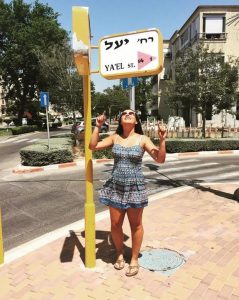
Ryan Sequeira ‘19 has lived in Southern California his whole life, but his parents are both from the Mumbai area of India. Sequeira doesn’t find many differences between school and his family besides the fact that they speak many languages, specifically English, Hindi and Konkani. Although, Sequeira appreciates the importance of community that he has been taught through his Indian heritage.
“I think it’s the sense of community, we’re much more connected as a family. Usually, children don’t really leave the household. There’s more of a multi generation community in the household,” he concluded.
Students Travis Dabbous ‘18 and Lucy Esber ‘18 both have family from Syria, and find benefits and challenges in their lives due to their family background.
“My parents speak to me in Arabic at home and I’ll respond in English,” Dabbous explained. “I’m in the middle of being Arab and American. I know Arabic but I kind of refuse to speak it, so that makes me an outsider in that sense.”
Dabbus explained that in kindergarten, he didn’t understand his global background and would always say he was just American instead of also identifying with his Syrian background.
“I didn’t really look that different from everyone else except from the ears,” Dabbous said with a chuckle.
Although Dabbous had some difficulty in embracing his culture, he appreciates it nonetheless.
“[Syrian culture] makes me more culturally sympathetic for others. My mom and dad have thick accents and I can understand other people’s families and cultures,” he concluded.
Esber, on the other hand, lived in Sweden for the first half of her life before her family moved back to Southern California. Her parents are both from Syria, so the Esbers speak Arabic and Swedish in addition to English.
“I can identify myself with my cultures, whereas like yes, I was born in America, but I also have the Swedish childhood, like I got to experience everything in Sweden. But also I have that Arabic aspect and it helps me identify where I come from and who I am,” Esber said. “It just makes me put my head up higher because my family has overcome all these different aspects, and yet we’re still making it in America.”
Esber also explained people stereotype her family often as a Muslim family. However, her family is of Christian faith.
“My family’s a Christian family and we’re from Syria. It’s not a terrorist country. It’s just difficult to overcome and witness the stereotypes because it gets difficult at times and just very discouraging,” Esber said.
Stefan Fahr ‘19 also struggled a bit with negative stereotypes that came when he would explain that he is 50 percent German.
“I think sometimes people that are somewhat uneducated, if they hear that I’m German, they’ll be like ‘Oh, we were once fighting with Germany,’ so these people sometimes create clashes with how people treat me,” Fahr said.
Nonetheless, similar to many other students, Fahr continuously expressed his appreciation for his German culture by teaching him good philosophies and giving him a “broader sense of how to live.”
Many students shared family stories about parents or grandparents and their journeys to the United States. Darren Wu ‘19, spoke fondly of his grandfather from Taiwan.
“[My grandpa] was in Taiwan and they started having rebellions and uprisings against the government. […] My grandpa, as a truck driver, was stopped by one of the rebellions and he got shot by a straight bullet,” Wu said. “He got hit in his leg and they had to pull him off to a hospital. […] That was actually how my grandpa met my grandma. She was working at the hospital at the time.”
These types of stories are the ones that ignite conversations amongst the students at Foothill; students who are diverse in ethnicity, race, thought and passions.
Cady Moore ‘19 also shared stories of when she visited China, after being adopted from China when she was ten months old. Moore explained that once when in a market in China, she and her sisters asked a girl if she would ever want to go to America. The girl responded by saying “’No, America is too free,’” according to Moore.
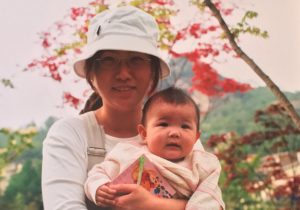
However, Moore expressed her apprehension to learn more about her biological parents, after she was anonymously dropped off at a safe site to give up newborns in China.
“Ever since [my sisters and I] were really little everyone always asked ‘Oh do you want to go back, do you wanna to see your parents,’ kind of thing. But I don’t really know what to think, I don’t really have an impression from them,” Moore concluded.
Countless of the students interviewed during this process expressed both their gratitude for Foothill’s welcoming atmosphere to all students, but also that coming from a global background creates an unmatchable appreciate for internationalism as well as tolerance towards other cultures.
“I guess because I came from another culture and then being immersed into [American] culture, I think it makes me more open-minded to learning about other people’s culture and learning to respect that,” Lee concluded.







